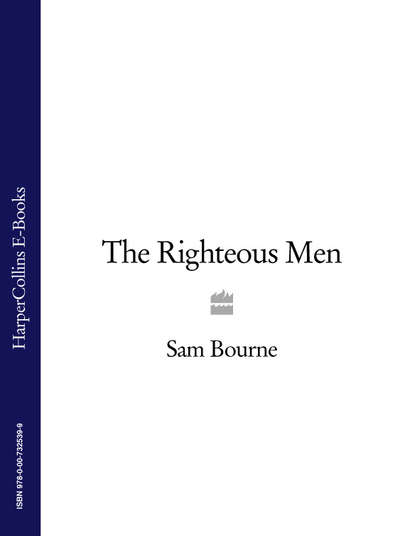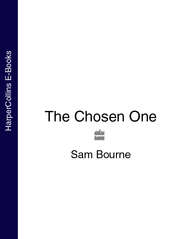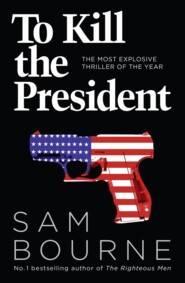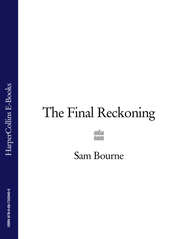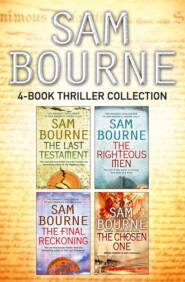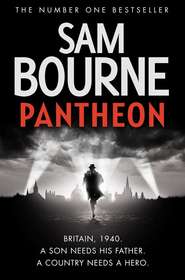По всем вопросам обращайтесь на: info@litportal.ru
(©) 2003-2024.
✖
The Righteous Men
Автор
Год написания книги
2018
Настройки чтения
Размер шрифта
Высота строк
Поля
‘To Seattle. Bates's wife is in labour and National need us to cover. Apparently they don't have any reporters of their own, so they've put out the begging bowl.’ Harden raised his voice. ‘I scraped the bottom of the barrel and offered them Walton, but he's come up with some lame-assed excuse and suggested you.’ Walton was on the phone, not listening. ‘Talk to Jennifer, she'll fix you a flight.’
‘Thank you,’ Will stammered, a smile beginning to break on his face. He knew this was a major break, a serious vote of confidence. Sure, it was only cover, only temporary. But Harden would not want Metro disgraced in the eyes of what he regarded as the Ivy League snobs over at National: he would want to show Metro's best face. Will gulped at the thought: that was him.
‘Oh and pack your galoshes.’
CHAPTER SEVEN (#u2b9e830b-8bca-5e82-a051-eb82c106fdca)
Tuesday, 10.21am, Washington State
And I have shown you, Jesus Christ is the light and the way. We have seen a miracle today …
Christian radio, along with country music, was the one staple you could always rely on: even the remotest backwater, where there were no other stations on the dial, would always be favoured with the word of the gospel, beamed through the air. The mountain passes of Washington State were no different.
He was getting closer to the flood scene, he could tell. The roads were becoming clogged and soon he began to see the flashing lights of emergency teams. Then, most reassuring of all, a fleet of white, liveried satellite trucks: local TV, confirmation that he had arrived at the site of the story.
He hooked up with a photographer who seemed to know what he was doing. For one thing, he had all the right equipment. Not just the regulation photographer jacket, with enough pockets to store the possessions of a nuclear family, but industrial-strength, thigh-high Wellington boots, waterproof trousers, polar ice-cap socks and gloves that looked as if they were custom-designed by NASA.
Will waded into the flood water after him, conscious of the chill creeping up his trouser leg. Before long they had hitched a ride on a police dinghy and were ferrying from submerged home to submerged home. He saw one woman winched to safety carrying the thing she valued most: her cat. Another man was standing, sobbing by his store front, watching a lifetime's investment wash away like leaves in a gutter.
A few hours of that and Will was back in the rental car, soaked and hunched over his keyboard. ‘The people of the Northwest are used to nature's temper – but her latest mood swing has them reeling,’ he began, before detailing the individual tales of woe. A couple of quotes from officialdom and a nice closing line about the fickleness of the climate, spoken by the man who had lost his stationery shop, and it was done.
Once back in the hotel room, he called Beth. She was already in bed. She talked about her day; he uncoiled the full story of his sodden journey into the flood lands. Both of them were too exhausted to restart the conversation they had never really finished.
He flicked on the local news: pictures of the Snohomish floods; Will picked out faces he recognized. His heart went out to the reporter doing the live-shot: that meant he was still there.
‘Next up, more on the murder of Pat Baxter. After these messages.’ Will turned back to his computer, only half listening to the words coming out of the TV.
The victim, fifty-five, found dead and alone in his cabin … police suspect a botched break-in … much damage, but nothing stolen … Baxter had been under surveillance for years … was briefly prime suspect in Unabomber case … no family, no relatives …
Will wheeled around. One word had leapt out. Will Googled ‘Unabomber’, getting an instant refresher course on a bizarre case which had foxed the FBI for two decades. Someone had sent mail bombs to corporate addresses on the East Coast, leaving behind a trail of obscure clues. Eventually, the culprit released a ‘manifesto’, a quasi-academic tract which seemed to be the work of a loner with a deep suspicion of technology. He also seemed to harbour a profound loathing of government. There was a piece on The Seattle Times website, just posted.
That sentiment put the Unabomber in tune with an entire 1990s movement, one in which the late Pat Baxter had been a reliable player. For this was the age of the gun-toting militias – Americans arming themselves against what they believed was an imminent onslaught by the US government. They eventually spread throughout America, but they began in the Pacific Northwest.
Will started working his way through The New York Times' online archive. He was struck by the first pieces that appeared: quite benign, depicting the militia men as ‘weekend soldiers’, overweight, overgrown schoolboys huffing and puffing their way through war games. But soon the tone changed.
The 1992 stand-off at Ruby Ridge, where a white supremacist lost his wife and child in a shootout with federal agents, like the siege at Waco, Texas a year later, revealed a world that most Americans – certainly those in media offices in New York – had never heard of. It saw Washington as the centre of a shadowy, new world order, embodied by the hated United Nations, which was determined to enslave free people everywhere. How else to explain the mysterious black helicopters spotted over rural America? What other meaning could there be to the numbers on the back of road signs; surely they were coded co-ordinates that would one day help the US army herd their fellow citizens into concentration camps?
The more Will read, the more fascinated he became. These civilian warriors believed the craziest theories – about freemasons, the Federal Reserve, coded messages printed on dollar bills, mysterious connections with European banks. Some of them were so sure the jackbooted bureaucrats of the federal government were out to get them that they had retreated into the hills, hiding in mountain cabins in remotest Idaho or wooded Montana. They had severed their links with the government in all its forms: they carried no drivers' licences, they refused to sign any official paper. Some moved, quite literally, off the grid – generating their own power, rather than living off the national electricity system.
And they were not playing games. On the second anniversary of the conflagration at Waco, the Alfred P Murrah federal building in Oklahoma City had shattered into dust, broken up by a mighty car bomb, killing 169 people. The culprits turned out to be not Islamist extremists but all-American boys whose heads had been filled with loathing of their own government.
The Seattle Times had an archive picture of Baxter at a rally in Montana in 1994. Except it looked more like a trade fair, down to the stands where exhibitors showed their wares. Baxter was pictured manning a stall that sold MREs – military-style, ‘meals ready to eat’. Apparently, he did a fairly brisk trade in dried foods, portable tents and the like: survivalist gear that would keep the freedom-loving American in food and shelter during the coming confrontation. In the remote world of the anti-government movement, Baxter was, if not a celebrity, then a fixture.
‘He was a great patriot and his death is a great blow to all those who love liberty,’ said Bob Hill, a self-styled commandant of the Montana militia.
Wednesday, 9am, Seattle Worryingly, the phone had not rung. When he finally awoke at nine – noon New York time – he saw that his cell phone was recording no missed calls at all. He reached for his BlackBerry; just some unimportant email. This was not right.
He reached for his laptop, pulling it down from the table and onto the bed, stretching its cable to breaking point. He checked the Times site: no sign of his story. He clicked down to the National section: links to stories out of Atlanta, Chicago and Washington, DC. He clicked and clicked. Here was something, datelined Seattle. But it was only an Associated Press wire story, written that morning. No sign of his own piece.
He phoned Beth. The hospital had to page her.
‘Hi babe, have you seen the paper today?’
‘Yes, I'm fine thank you. How kind of you to ask.’
‘Sorry, it's just – have you got it there?’
‘Hold on.’ A long pause. ‘OK, what am I looking for?’
‘Anything by me.’
‘I looked this morning. I couldn't see anything. I thought maybe you were going to do more work on it today.’
Will tutted silently: of course he wasn't going to work on it today. It was an on-the-day news story, about weather for Christ's sake: there was no more perishable commodity in journalism than a weather story.
‘You checked the National section inside? Each page?’
‘I did, Will. I'm sorry. Does this mean they didn't use it?’
That was exactly what it meant: his story had been spiked.
He braced himself for a call to the desk. If anyone but Jennifer, the news clerk, answered, he would hang up. He dialled.
‘National.’ Jennifer.
‘Hi, Jennifer, it's Will Monroe here, out in Seattle.’
‘Oh hi. Wanna speak to Susan?’
‘No! No. No need. You know that piece I filed yesterday, from the floods? Do you know what happened to it?’
Jennifer's voice suddenly dipped.
‘Kind of. I heard them talking about it. They said it was very nice and all, but that you hadn't talked about it with them first. If you had, they'd have told you they didn't need a story yesterday.’
‘But I did speak …’ Of course. He had only talked with Jennifer, told her his co-ordinates and his plans. He had assumed they wanted him to file. Had Harden not told him to pack his galoshes?
Now he realized: he was in Seattle just in case. He was keeping Bates's seat warm. All that soaking effort yesterday had been in vain. He felt embarrassed, like an over-eager intern. It was a stupid mistake.
‘Hold on, Susan wants a word.’
Three time zones away, Will readied himself for a roasting.
‘Hi, Will. Listen, I think the rule ought to be no filing unless we've talked about it first. OK? Maybe just find something that interests you, poke around a bit and see what it's worth. As for spot-news, keep your phone on and we'll call you if we need anything.’
Will ate a glum breakfast. He had screwed up and screwed up badly. By now Jennifer would have spread the word among the tiny circle of Times staffers in their twenties: they would be having a good laugh at his expense. The golden boy with a big-shot daddy had come down to earth.
There was only one solution. He would have to reel in a proper story. Somehow, from this far-off patch of snow, timber and potatoes, he would have to eke out a tale that would prove to New York that they had not made a mistake. He knew exactly where he would go.





